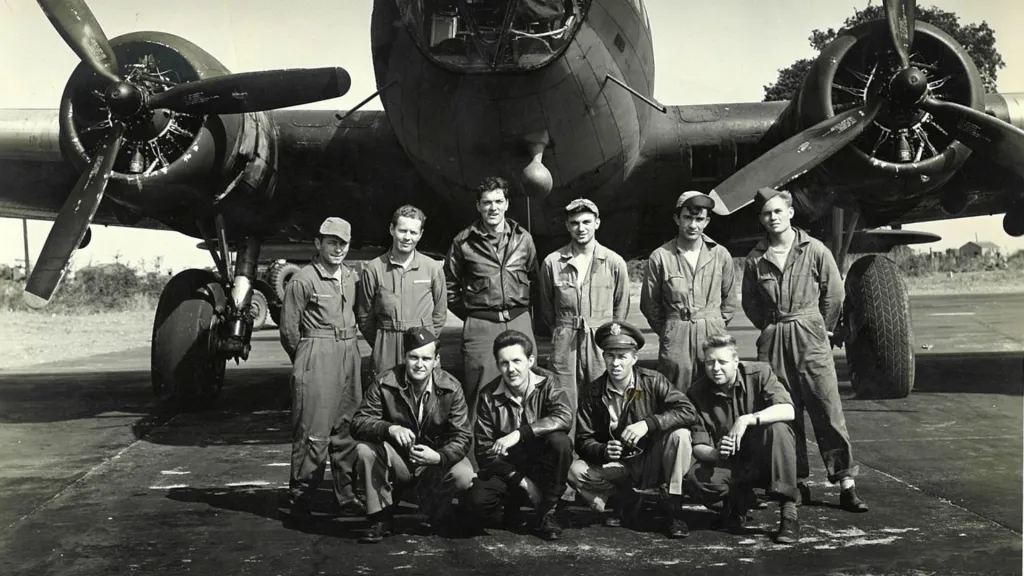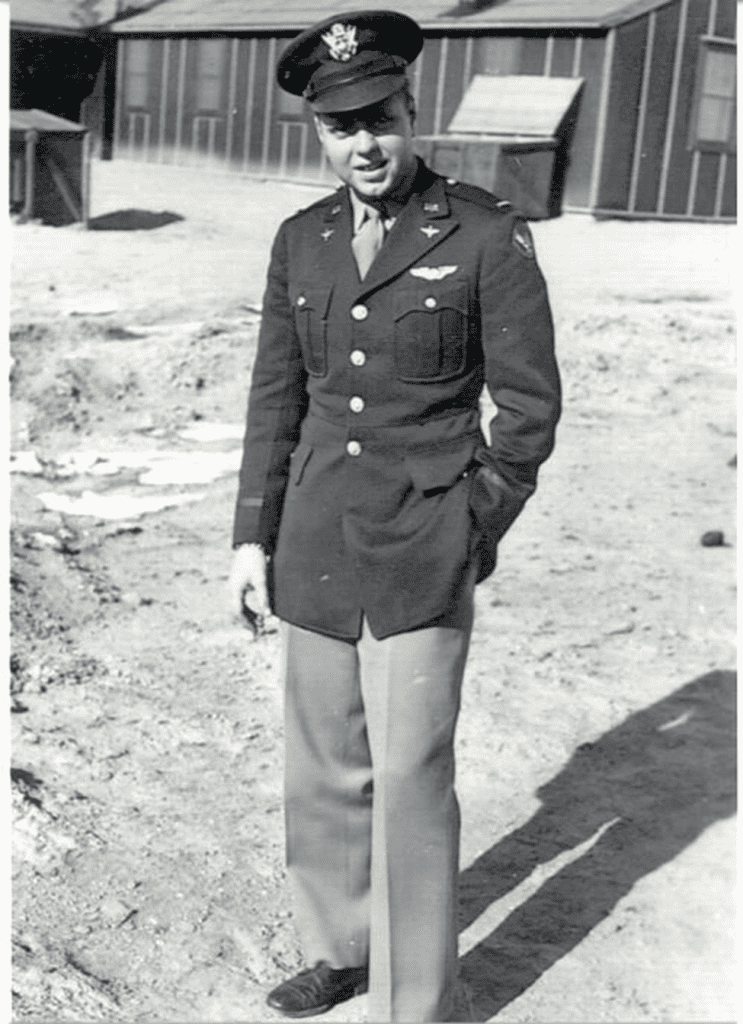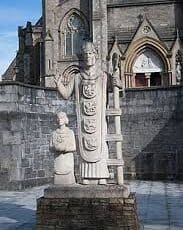

Frank D. Murphy was born on 9 September 1921 and grew up in Atlanta, Georgia. His ancestors were from Dublin.
In the fall of 1939, Frank entered Emory University in Atlanta where his principal interest was music. In December 1941, following the Japanese attack on Pearl Harbor, he applied for an appointment as an aviation cadet in the US Army Air Corps. He was accepted and entered the Army on January 19, 1942.
After basic instruction at Maxwell Field, Alabama he was sent to the Air Corps navigator’s training school at Turner Field, Albany, Georgia. On July 4, 1942, Frank graduated from the navigation school at Turner Field with an appointment as a second lieutenant, US Army Air Forces. He was assigned as the B-17 navigator on Crew 31 of the newly formed 100th Bomb Group. Frank and his crew were with the 100th Bomb Group when it was sent to England in June 1943 to become part of the United States Army Eighth Air Force.
Frank flew 20 missions with Crew 31 until 10 October 1943, the bombing mission over Munster. Problems cropped up immediately after take-off. The last mission was less than 24 hours earlier meaning there was no time for maintenance before this raid. Four of the 21 bombers in his group turned back due to mechanical problems. This would leave holes in the group formation defense over the target. Murphy tells the story describing when his plane was hit over Munster. “I was firing the left nose gun when an explosion behind me sent me crashing to the floor. I felt a burning sensation in my left arm and shoulder. . .I had been hit.”[i] Murphy bailed out along with the rest of the crew. They were captured by the Germans and imprisoned in the infamous Stalag Luft III where a mass escape in 1944 was followed by the execution of many of those who were recaptured. This was featured in the film the Great Escape. Murphy was a prisoner until the end of the war nineteen months later.
Murphy summarized his wartime experience as the luck of the draw. It didn’t matter how well-trained or organized you were, you lived or died based on the mission you drew.
His first 20 draws were okay. The mission to Munster was his last.
When the war ended, 26,000 airmen of the 8th Air Force had been killed in action. Murphy survived the war, married, and lived to draft his story for his children. Frank authored his book Luck of the Draw; Reflections on the Air War in Europe, between the years 1995-2000. It was published in 2001. Murphy’s experience is among those included in the TV series Masters of the Air which is scheduled for release in January 2024. Frank Murphy passed away on 16 June 2007.
[i] Murphy, The Luck of the Draw, 229.



